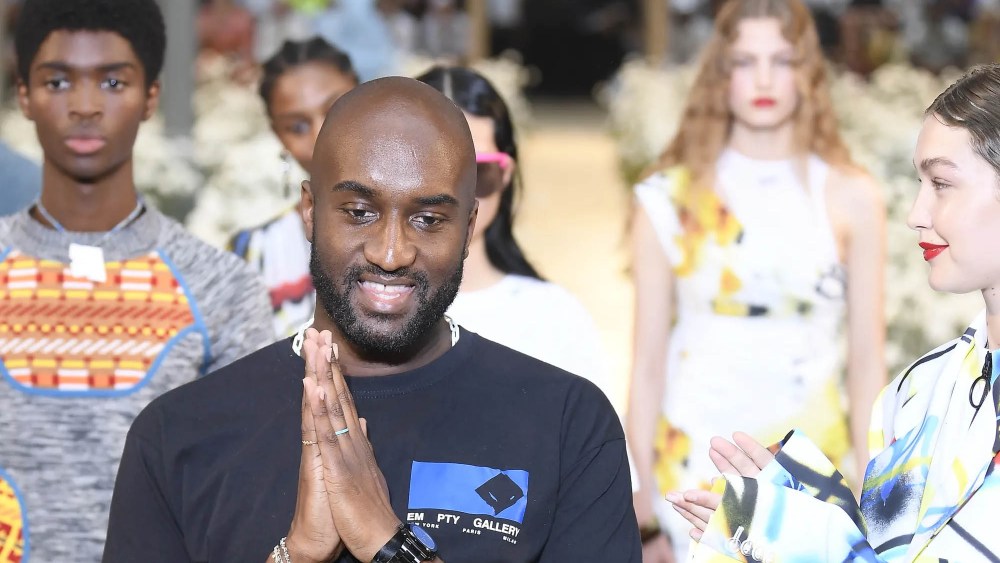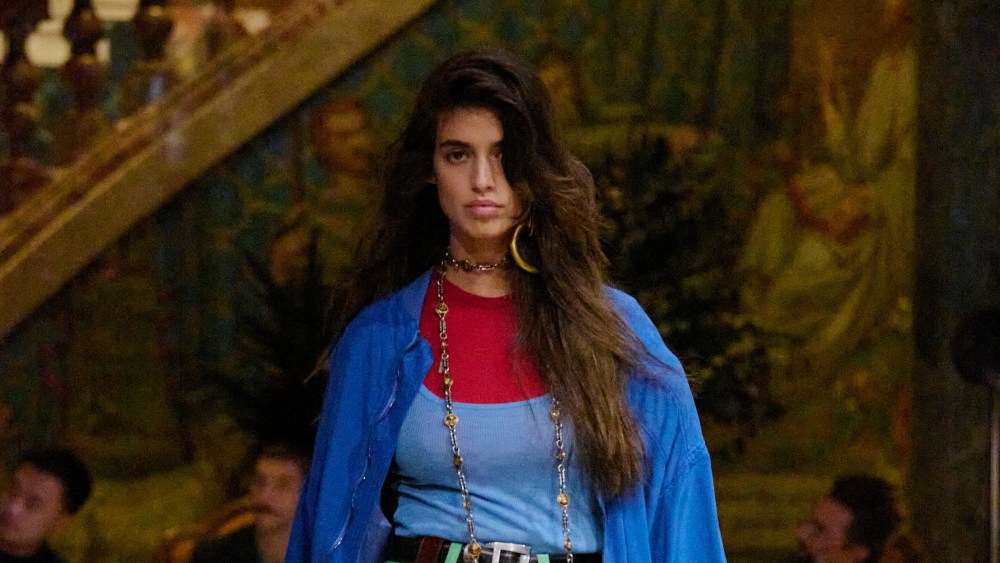
Although fashion can typecast designers, Virgil Abloh’s agility in complexity and his ability to not just build community, but also guide it, transcended that.
With her new book “Make It Ours: Crashing the Gates of Culture With Virgil Abloh,” Robin Givhan details and contextualizes how the Chicago-born multidisciplinary talent became a cultural leader by heading menswear for Louis Vuitton. Taking on that job in 2018, Abloh upended the industry and became the first Black artistic director in the luxury house’s 164-year history. His death at the age of 41 in 2021 was a global news story that was fueled in part by the millions who mourned him.
A trained architect, Abloh combined streetwear with exclusivity long before he walked the halls of LVMH. A proven DJ, he blended music, race, taste, luxury, DIY, marketing, architecture, and sneakerhead fetishes into his creations. Givhan, The Washington Post’s senior critic-at-large, took leave in 2023 to write the book. She said she hadn’t wanted to write a traditional biography that begins with, “‘He was born on a nice fall day in September.’” Her preference was to focus on the years that were most important from a fashion perspective. That included his high school years, since Abloh often spoke of doing everything for the 17-year-old version of himself.
Despite not having any formal training in patternmaking or tailoring, Abloh’s story is about optimism. His accolades are many. Before joining Louis Vuitton, his endeavors included starting Off-White, collaborating with Nike and Ikea, and working with Kanye West at Donda.
Describing her relationship with Abloh as “purely arms-distance professional,” Givhan said his passing caused such “an outpouring from so many people that felt so much more intimate.” While the fact that he was only 41 was a factor, it was also as if “a good friend or someone people felt they had a special relationship to had passed away,” Givhan said. “That was pretty interesting to me.”

Robin Givhan
Photo by Kevin J. Miyazaki/Courtesy
The fact that Givhan had spent a good deal of her time being “pretty critical” of Abloh’s collections created a disconnect that intrigued her. “So much of what he was doing really wasn’t about the clothes at all. As I was focused on say, a varsity jacket, or his collection that was inspired by Princess Diana, the thing I was missing was that the clothes weren’t about making people feel like they were in vogue, in style or on trend,” Givhan said. “It was about making them feel like they were part of a community in the same way that sports fans put on the jersey of their favorite team. That communicates something to like-minded people.”
She recalled how while speaking with students, Abloh tossed a Nike prototype that he was working on into the audience for feedback, and chuckled about how doing so probably violated all kinds of rules with his collaborator. “He felt very comfortable just pulling down the curtains and saying, ‘Look. This is what’s going on behind-the-scenes,’” Givhan said. “Sometimes it was very transparent and sometimes it was the illusion of transparency.“

The cover of the Crown-published book.
Image Courtesy Crown
The author hopes that readers will recognize that Abloh was standing on the shoulders of other people who had challenges that he didn’t have to face, such as Ozwald Boateng and Edward Buchanan. Another takeaway is how cultural shifts made space for Abloh. The power of social media, the rise of menswear, fashion’s efforts to reach a broader audience, and “the degree to which the customer base was, and is continuing to become so much more diverse, helped Abloh become this figure that so many people were wowed by,” Givhan said.
Asked about Abloh’s greatest accomplishments, the Pulitzer Prize-winning Givhan highlighted the example that he gave to people “who feel that they are so far outside of an industry that they don’t even know where the front door is. They have no idea about foundations, prizes, scholarships and all of the things that the industry does to bring in more people. I hope they look at his story and see that they shouldn’t feel that way,” she said. “Also, I hope the industry looks more closely at what it gains by elevating someone with an unorthodox background like Virgil.”
Givhan added, “I hope people get a sense of optimism, because Virgil was an optimist. That was something he imparted to his fans. He made them believe in possibility even as he frustrated them and the industry [laughed.]”
#Virgil #Ablohs #Career #Cultural #Impact #Robin #Givhans #Book







